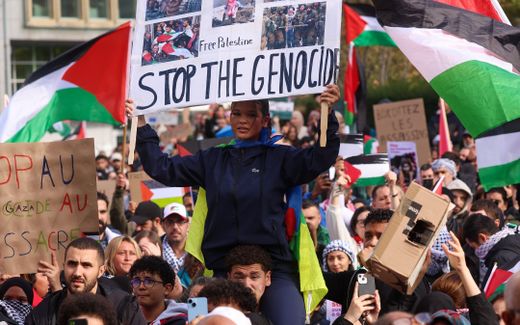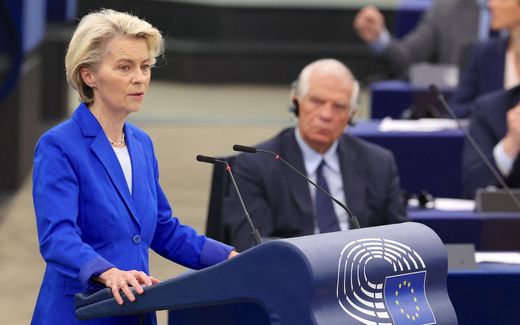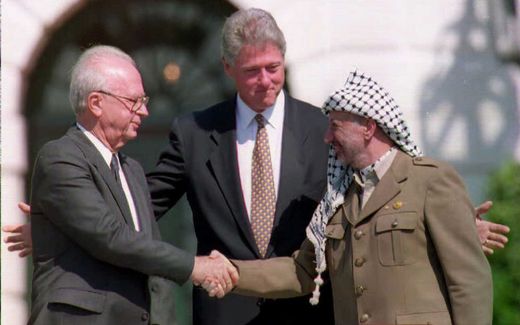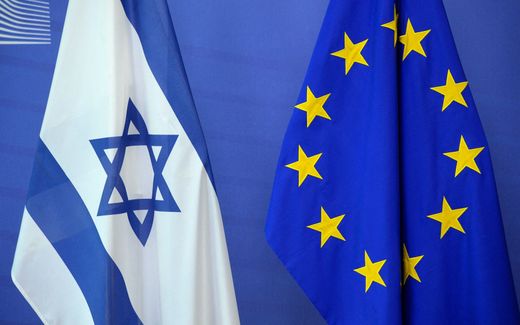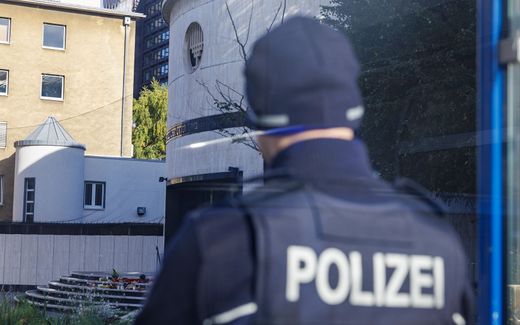Evert’s comment: It is a matter of Christian honesty to remind Israel of humanitarian law
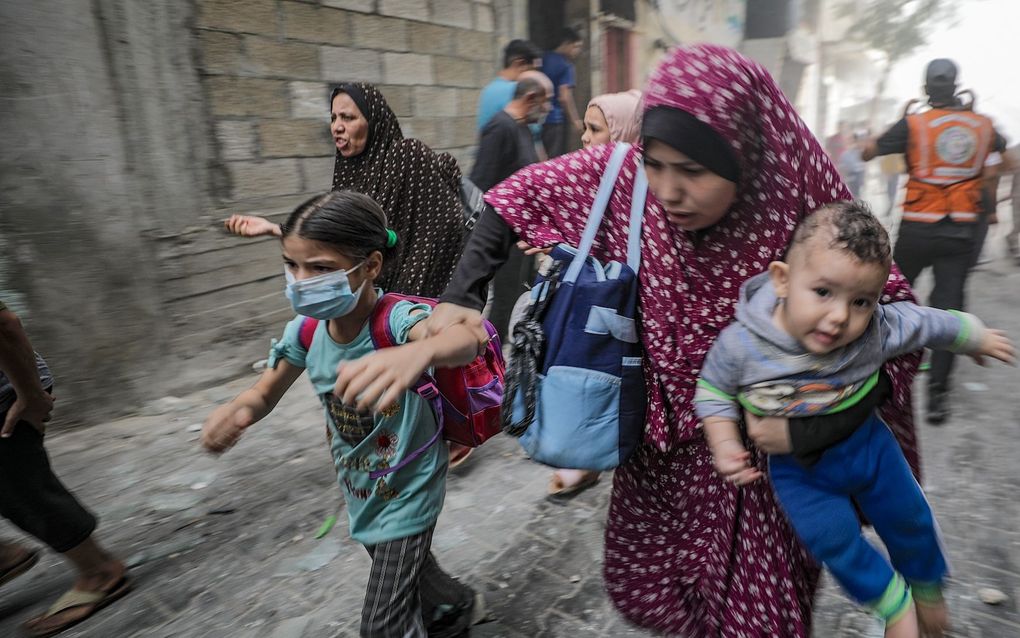
A Palestinian mother fleeing violence with her children. Photo EPA, Mohammed Saber
Opinion
Overwhelming – that was the support Israel received from political leaders. Almost all political leaders from the Western world defended Israel’s right to self-defence after the attacks on October 7th. After a few weeks, people feel free to say more. And then, things become sensitive.
This is not the time to say “but”, said the Dutch Prime Minister Mark Rutte. It was a few hours after the raids on that Saturday. For days, the Liberal leader only expressed support for the Jewish nation. On the Monday, he even had the Israeli flag hoisted at his office.
There was more than enough reason to do so. The terrorists of Hamas raided Israel as cannibals assault their prey. Even with the conflict between Jews and Palestinians in mind, this terror is undefendable – period. No “but”.

Many of Rutte’s colleagues did the same. Also, the European Commission President, Ursula von der Leyen, stuck to language in favour of Israel. At other times, there had been more tension between Brussels and Jerusalem. But now, it was no time to say “but”.
But today, as October 7th gets further away from us, more words are being used. Quite unusual, both Prime Minister Rutte and President Von der Leyen received a letter from civil servants who expressed unease with their leaders’ statements because they were too one-sided. In other words, they asked the political leaders to say a “but”.
Also, the United States government were very supportive towards the Jewish nation. Last Saturday, President Biden published a joined statement with Prime Minister Trudeau (Canada), President Macron (France), Chancellor Scholz (Germany), Prime Minister Meloni (Italy) and Prime Minister Sunak (United Kingdom). In a few lines, they were able to express this “but” without actually using the word. “The leaders reiterated their support for Israel and its right to defend itself against terrorism and called for adherence to international humanitarian law, including the protection of civilians.”
That shows that precisely two weeks after the deadly moment, there is space to say two things: 1. to repeat support, and: 2. to warn Israel against acting too boldly.
Sensitive
If it is about Israel, this double-sidedness always proves to be incredibly sensitive. In debates, supporters of both parties demand full support for their perspectives. Double-sided people are easily seen as cowards and traitors. The Israeli-Palestine issue is full of emotion. You have to be wise if you want to speak about it.
I think it is possible to be wise and honest. When Mark Rutte visited his colleague Benjamin Netanyahu on Monday, he was able to extend his message with a “but”. He repeated his support for the country’s defence. But he also said that Israel had the obligation to work in line with the humanitarian legislation.
Two essential elements from these “rules in war” are: 1. work proportionally, and 2. keep a sharp distinction between civilians and soldiers.
Honestly, I believe that it would be easier for Israel to fight against an official army, as Ukraine does. It would be clear then where and how to combat the enemy. That is not clear now. The terrorists of Hamas are acting as if they are civilians and are hiding in the residential area as well. Both aspects of humanity in war become unclear: What is proportionality? And: How do you combat terrorists when they are hiding in a housing area?
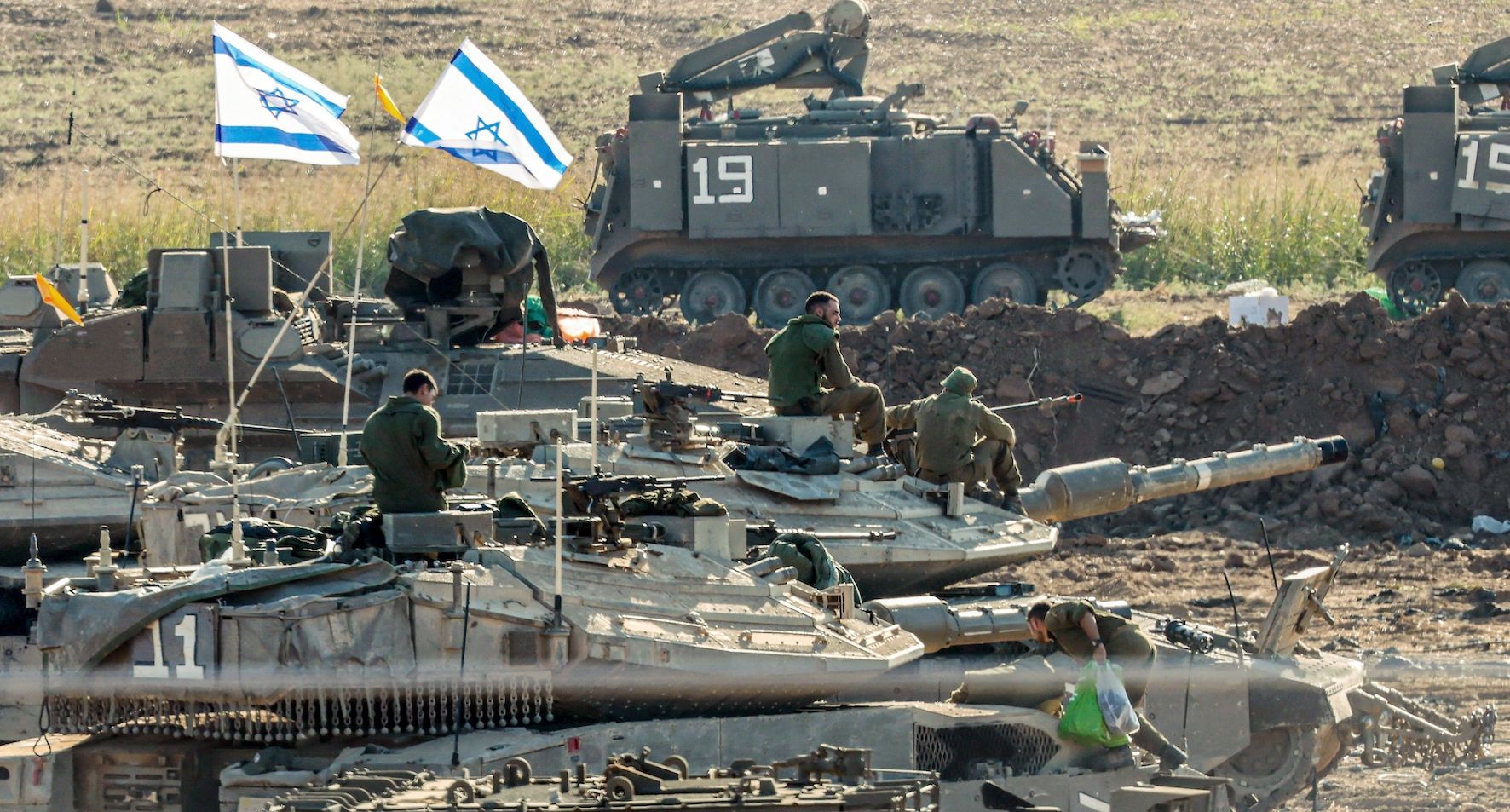
Knowing this, you can imagine that this is extremely difficult for Israel. If Israel wanted to avoid all civilian casualties, it wouldn’t actually be able to fire another shot.
And in the midst of that, European and American politicians come in their smart suits and with clean hands to tell you how to fight a war. How irritating do you want it to be?
It may be a narrow rope you have to walk on. Israel showed itself offended after United Nations leader Antonio Guterres said the Hamas raid had not happened “in a vacuum”. Although this might be true, historically, Guterres could also understand that such a phrasing is not very diplomatic.
Judeo-Christian
And still, as a Christian, I think it is a matter of honesty to remind Israel of its humanitarian obligations. I have a few reasons for that:
- It is humanity that makes the difference between terrorists and a democracy with the rule of law.
- We have learned the humanitarian thinking from the Judeo-Christian heritage. In the Old Testament of the Bible, there is enough to prove that God wants us to be caring instead of overpowering. Islamic countries usually live with other values.
- The Western countries that are rooted in these Judeo-Christian values have a moral obligation to protect the weakest parts from the strongest. The exhausted mother in a Palestinian area trying to breastfeed her child has no role in the terrorist actions. And therefore, she has the right to stay out of the spiral of violence as well.
- From experience, we know that the Israeli army can be too bold, sometimes. That is understandable if you have one of the most powerful armies in the world, but this is a temptation, too. A mighty power needs a counterweight to get into balance.
Somebody has to speak up for that mother with her little child. You are not a coward or a traitor if you do – on the contrary. Only brave people protect babies.
Practically thinking, it would be much easier to shut your eyes for the weakest and do as if everybody is a fighter. But the effect of that is that the strongest party will win every battle just because of his strength.
The leaders who reminded Israel of its obligations in the past few days –from President Biden to Prime Minister Rutte– have handled this well, I think. They spoke to Netanyahu as a friend. And he will know whether their advice is honest or not.
Related Articles


